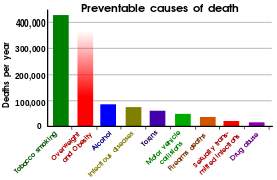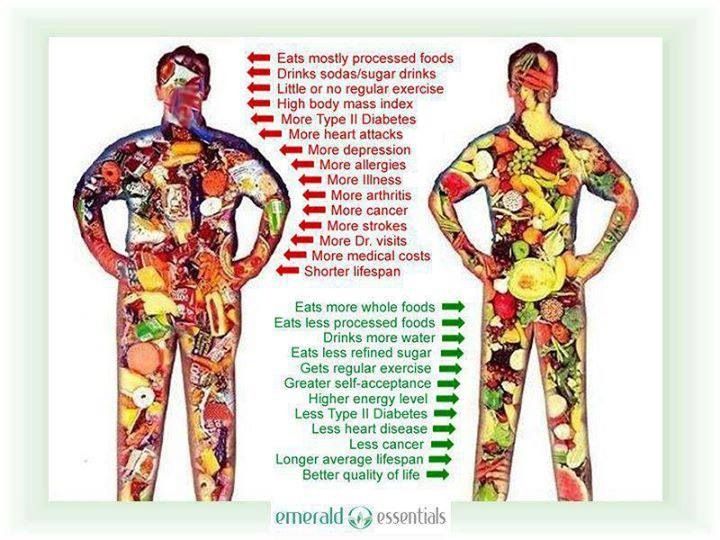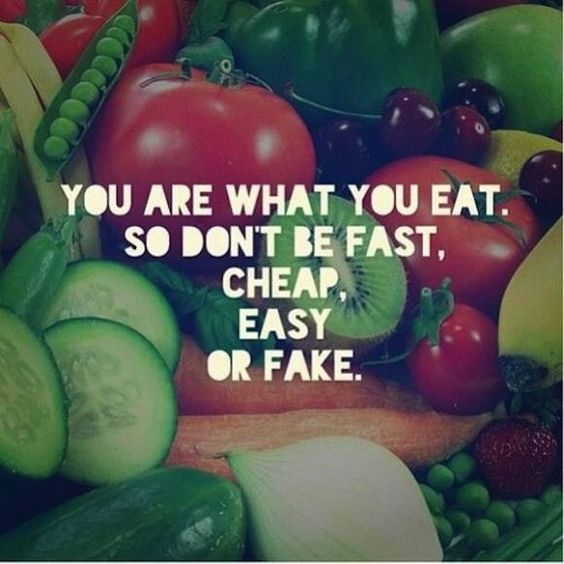Relationship between Nutrition and Diseases
| ✅ Paper Type: Free Essay | ✅ Subject: Nutrition |
| ✅ Wordcount: 2631 words | ✅ Published: 18 May 2020 |
Explain the connection between nutrition and disease. Be sure to include information on chronic diseases, as well as malnutrition and other leading causes of death
It is no secret that our diets our connected to how healthy or how unhealthy we are.
Eating an unhealthy diet can increase our risk for a number of diseases such as diabetes or
cardiovascular disease. With more than one-third of the United States being overweight or obese
what has changed over the past few decades? Over the past few decades it seems that our portion
sizes are getting bigger and bigger. “Larger portions not only contain more energy but also
encourage people to eat more, making it more difficult to balance static levels of physical
activity.” (Young & Nestle, 2002). On every corner there is a fast food restaurant with a line in
the drive-thru. It seems like we no longer have the time to care about what we eat. Our
schedules are so packed that we don’t have time to cook healthy and well-balanced meals that
will keep us healthy, so we depend on going through a drive-thru to pick up something quick.

By eating a healthy and well-balanced diets we get much needed nutrients for our bodies
to run efficiently and to ward off illness. “Many older people suffer from debilitating conditions
that could have been largely prevented had they known and applied proper nutrition principles
known today.” (Sizer, 2017). By adding on unnecessary weight to our bodies it causes our heart
to work harder, this is why it is important to maintain a healthy weight. Heart disease is the #1
cause of death in the United States and maintaining a healthy weight decreases our risk for heart
disease, stroke, or heart attack. Everything we consume affects our bodies either for good or bad.
Dying from being overweight is preventable, we just have to want to prevent it. “Multiple
studies have found a correlation between a diet high in refined sugars and impaired brain
function-and even a worsening of symptoms of mood disorders, such as depression.” (Selhub,
2015). With over 20% of Americans suffering from a mental illness it is important to pay
attention to what we eat, not only because how it will affect us for the next few hours but for the
next few decades. Since our brains tell our other bodily systems how to function it is important to
supply our brains with proper nutrients to make sure it runs at peak performance.

References
Portion Sizes [image](2017). Retrieved from http://feelfitastic.com/2013/08/portion-sizes/
Preventable Causes of Death [image](2017). Retrieved from https://en.wikipedia.org/wiki/Preventable_causes_of_death
Selhub, E. (2015, November 17). Nutritional Psychiatry: Your brain on food. Retrieved November 10, 2017, from https://www.health.harvard.edu/blog/nutritional-psychiatry-your-brain-on-food-201511168626
Sizer, F. (2017). Nutrition: Concepts and Controversies, 14th Edition. [Bookshelf Online]. Retrieved from https://bookshelf.vitalsource.com/#/books/9781305886865/
Young, Lisa R. and Nestle, Marion. “The Contribution of Expanding Portion Sizes to the US Obesity Epidemic.” American Journal of Public Health, vol. 92, no. 2, Feb. 2002, pp. 246-249., doi: 10.2105/ajph. 92.2.246
Examine the factors (e.g., social, psychological, philosophical, and physical), contemporary nutrition controversies, and cultural differences that drive our food choice.
What happened to the days when we would sit down at the dinner table to a home cooked
meal and talk to each other? There are a lot of factors that contribute to the way we eat,
including, social, physical, philosophical, and psychological. Convenience plays a big role in our
food, it seems like we don’t have enough time in the day to complete all of the things that we
need to do. “Consumers also value convenience so highly that they are willing to spend almost
half of their food budget on meals prepared outside the home.” (Sizer, 2017, p 13). Our culture
and society make it seem like it is okay to go out and get that big mack. It seems that every
commercial I see on t.v. is for some type of fast food. It doesn’t help that those commercials
make their food look so much better than healthier food.

When I was growing up my family ate fairly healthy and my parents would cook dinner
almost every night, or we ate leftovers from the previous night. I rarely ate junk food or drank
soda. But when I was in high school I started to eat unhealthily because my sister was in the
hospital, so my healthy and well-balanced diet went out the window. Luckily for me in high
school I played multiple sports and was always active so eating that way really didn’t affect me,
but it affected me when I got older. Luckily now I know more about health and nutrition to care
about what I eat. That doesn’t mean that I don’t splurge on occasion! I do love ice cream, I just
don’t eat it every day and when I do it is in moderation.

I think social factors play a huge role in our food choices. We after all social beings. If
we are out with our friends we don’t want to be the one ordering a salad and water when
everyone else is ordering burgers, fries and a beer. A psychological factor can be having a
craving for a certain food or eating out of boredom. Cravings are okay we just need to consume
them in moderation. It is important to not over indulge. “Feelings of sadness, anxiety or stress
often lead people to eat more than usual.” (American Psychology Association, 2015). A physical
factor may be what type of food someone has access to. This is especially true in low income
families. It is hard for a family on a budget to choose not to get fast food when it is cheaper than
going to the grocery store and buy healthy nutritious foods.

References
American Psychology Association. (2015). Mind/body health: Obesity. Retrieved from http www.apa.org/helpcenter/obesity.aspx
- Factors Affecting Food Choice [image] (2017). Retrieved from http://www.weightconcern.org.uk/node/72
- Healthy Living [image] (2017). Retrieved from https://www.pinterest.com/fitworkshopc0m/healthy-eating/?autologin=true
- Sizer, F. (2017). Nutrition: Concepts and Controversies, 14th Edition. [Bookshelf Online]. Retrieved from https://bookshelf.vitalsource.com/#/books/9781305886865/
- What You Eat [image] (2017). Retrieved from https://www.pinterest.com/pin/408631366160910622/
Analyze the sources and functions of macro- and micronutrients and their impact on our health and well-being
When I started my fitness journey I heard a lot of people taking about macronutrients and
micronutrients. I really didn’t understand what they were talking about. Was it different from
counting calories? Well I did my research and found out that macros and micros are what make
up our calories. Macronutrients are carbohydrates, fats and proteins while micronutrients are the
vitamins, minerals, and water.

Carbohydrates and fats seem to get a bad rap, but carbs and fats are the bodies main
source of energy. With that being said, there are good carbs/fats and bad carbs/fats. Good carbs
should make up at least half of your daily caloric intake. Proteins are used for muscle and
cellular repair. Bad fats are what clog your blood vessels and increase your risk for heart disease
and stroke. “Vitamins and minerals assist in all body processes; digesting food; moving muscles;
disposing of wastes; growing new tissues; healing wounds; obtaining energy from carbohydrate,
fat, and protein; and participating in every other process necessary to maintain life.” (Sizer &
Whitney, 2017). Water is undoubtedly the most important nutrient because the majority of our
body is made up of water. We have all been dehydrated before and now how well we function
(or don’t function!) and that’s because our body isn’t running as effectively as it should.

References
- Good Fats vs Bad Fats [image] (2017). Retrieved https://www.befiteverafter.com/good-fats-vs-bad-fats.html
- Macronutrients vs Micronutrients [image] (2017). Retrieved from http://www.flspinalcord.us/macronutrients-and-micronutrients/macronutrients-vs-micronutrients-whats-the-difference-macronutrients-and-micronutrients/
- Sizer, F. (2017). Nutrition: Concepts and Controversies, 14th Edition. [Bookshelf Online]. Retrieved from https://bookshelf.vitalsource.com/#/books/9781305886865/
Explain the digestion, absorption, and metabolism of the macronutrients (carbohydrate, protein, and fat). Make sure to appraise the parts of the body involved in these processes
Now let’s talk about some gross stuff! About how our bodies digest, absorb and
metabolize macronutrients. As you can see in the picture below the digestive system is made up
of many organs and body parts to include your mouth. Each part of our digestive system plays a
very important role in digestion and absorption of these nutrients.

Carbohydrates start to be broken down when we take a bite of our food by our saliva that
helps break down the starches. Carbs continue to get broken down further in the small intestine
by digestive juices from the small intestine and the pancreas. “Bacteria in the small intestine
produce some of the enzymes needed to digest carbohydrates.” (Wallace, 2013). Fats are
digested by a digestive juice called bile that is produced in the liver, stored in the gallbladder and
released into the small intestine during the digestion process. Our stomach acid is responsible for
digesting proteins. The small intestine is divided into three parts; the beginning is called the
duodenum, the middle called the jejunum, and the end is called the ileum. The duodenum and
ileum are where the absorption of these nutrients happen. Once these nutrients are absorbed they
are transported to the areas of the body for use or storage.
References
- Digestive System [image] (2017). Retrieved from http://easyscienceforkids.com/all-about-your-digestive-system/
- Wallace, M. (2013, September 1). The Digestive System & How it Works. Retrieved December 10, 2017, from https://www.niddk.nih.gov/health-information/digestive-diseases/digestive-system-how-it-works
Evaluate the nutritional requirements across the lifespan – from pregnancy to childhood, and from adolescence to adulthood
As we have probably all discovered as we have gotten older is that our metabolisms
aren’t as fast as they were when we were younger. As we grow from being in our mother’s
womb into adulthood our nutritional requirements change.

If you’ve ever been pregnant your doctor has told you to take prenatal vitamins and folic
acid. Pregnant women need more folic acid to help prevent brain and spinal birth defects
(ACOG, 2015). Eating a healthy and well-balanced diet should be something that we all do but it
is especially important for pregnant women, so their babies are born healthy and at a safe weight.
During infancy it is important that infants receive calcium and vitamins A&D to help in
their growth. “A baby grows faster during their first year of life than ever again.” (Sizer &
Whitney). Those of you that are parents are probably all aware of this! All my sister said when
my nephew was little was how fast he was growing! Seriously she would mention it every day!

Not giving our children, a proper nutritious diet can affect them for the rest of their lives.
It is important to limit processed and sugary foods, and give vitamins, minerals, protein and iron
to aide in their growth and brain development.
It seems that these days teenagers are just as busy as adults between school and their
extracurricular activities. Not every teenager is the same and the number of calories they need
varies based on their activity level, gender, and how fast they are growing. My friend is always
telling me that she needs to get another job to support her oldest child’s eating habits since he is
in a growth spurt and playing football. See the way that some kids eat almost make me happy
that I currently don’t have any! “Needs for vitamins, minerals, the energy-yielding nutrients, and
in fact all nutrients are great during adolescence than at any one time of life except pregnancy
and lactation.” (Sizer & Whitney, 2017).

Now by the time we are adults we should know what foods to eat and not to eat. That
doesn’t mean that we listen to ourselves! As more of the country becomes overweight and obese
we continue to stuff our faces with french fries and hamburgers. We have the knowledge that
eating healthy and exercising regularly will decrease our chances of an early death but we still
eat things that are bad for us. By eating a healthy and well-balanced diet we can keep our bodies
healthy, ward off diseases and increase our chances of living longer. We should all want to live
long and happy lives.
References
- Child Nutrition [image] (2017). Retrieved from https://www.dreamstime.com/stock-photo-baby-surrounded-fruits-vegetables-healthy-child-nutrition-cute-boy-sitting-table-eating-apple-isolated-white-image81791806
- Sizer, F. (2017). Nutrition: Concepts and Controversies, 14th Edition. [Bookshelf Online]. Retrieved from https://bookshelf.vitalsource.com/#/books/9781305886865/
- Stages of Life [image] (2017). Retrieved from https://www.istockphoto.com/vector/different-stages-of-a-womans-life-gm546179876-98604611
- Teenager Eating [image] (2017). Retrieved from http://www.clipartreview.com/pages/101027-237973-707009.html
- Women’s Health Care Physicians. (2015, April). Retrieved December 10, 2017, from https://www.acog.org/Patients/FAQs/Nutrition-During-Pregnancy
Create a personal diet modification plan by analyzing your personal diet in terms of nutritional strengths and weaknesses and discussing the changes you plan to make in your own life to better meet the dietary guidelines
I will be the first to say that my diet hasn’t been the best but I have been doing better and eating
healthier for the past few years. Over the past few years I have gained a lot of knowledge and continue
to learn every day about fitness and nutrition. I am overweight but I workout 5-6 days a week and eat a
pretty healthy diet. For me it really isn’t a problem eating healthy but eating the right amount of meals a
day. I do home health occupational therapy so I work out of my car and I have to take snacks that won’t
spoil and that I can leave in my car. So to say the least my choices are limited. Nutrition has become a
big part of my life, I read labels, stopped drinking sodas and fast food, cut down on sweets, and pretty
much stopped drinking beer (I will occasionally still have a beer but it is few and far between).
Like many others I have a busy schedule between work, school, and other activities but I write
out my daily schedule and it has helped a lot to be able to see that I do have time to work out. I am also
a huge fan of my Samsung fitness watch. It helps me push myself to hit my step goals and other daily
fitness goals. With the phone app it really helps me with my diet because I can log my food and it shows
me my calories and nutrients consumed. It helps me stay on track with making sure that I get the daily
recommended amount of fiber, carbs, proteins, fats, vitamins and minerals. My biggest weakness of my
diet would be my snacking. I usually take an apple or a protein bar with me but that gets old after a
while. It is especially hard in the summer since it gets so hot in the car and I don’t want to have to take a
lunch box in with me when I go see my clients. Occasionally if I don’t bring a snack and if I get hungry
enough I’ll stop and get a snack but it is usually an unhealthy snack. Luckily this rarely happens! I am
always looking at the grocery store for something that I can bring with me and leave in the car. What do
you guys think, do you have any good suggestions for me?
Cite This Work
To export a reference to this article please select a referencing stye below:
Related Services
View allDMCA / Removal Request
If you are the original writer of this essay and no longer wish to have your work published on UKEssays.com then please click the following link to email our support team:
Request essay removal


